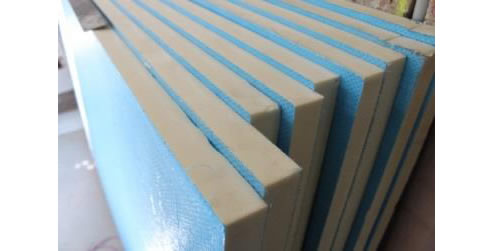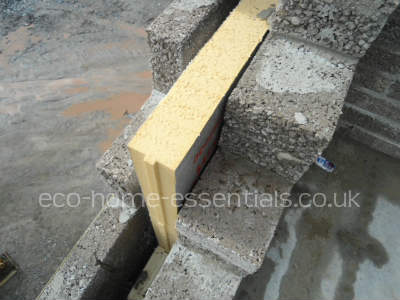
What is the your factor of rigid insulation? Which insulation material has the highest R-value? R - value measures how well certain building insulation materials can resist heat.
The higher the R - value , the greater the insulation performance. This product typically has an R value of 3. That formula is in imperial units. Foam insulation densities vary among closed-cell vs open cell forms. C or Thermal conductance of these materials is the reciprocal of the R-value.
EPS is the insulation used most widely in insulated concrete forms and structural insulated panels (SIPs). EPS has the lowest average R-value of the three most common types of rigid-foam insulation, around R-per inch. It also is the least expensive. EPS is suitable for ground contact and can be treated to resist insects. Because rigid foam plastic insulation products are not all aged in accordance with the same standards, it is useful to publish comparison R - value data.
Free 2-day Shipping On Millions of Items. Additional R-value for a masonry wall constructed using these materials needs to add the insulating value of additional wall components typically include such as solid foam (polyisocyanurate R extruded polystyrene R expanded polystyrene R or of perlite R ) and for an exterior air film (winter, no win R 7), an interior. Rigid insulation R value , by comparison, usually ranges from R -4. The fibrous materials, such as woo cane, or vegetable fibers, are mixed with fillers and binders to form insulation boards. Unfinished foundation and basement walls are typical applications for these boards , which only require two to three inches to achieve the recommended R -for basement.
Energy Saver can provide expert rigid foam installation. If you need insulation for your basement, crawl space, or attic, rigid foam insulation is a good. It is denser than EPS and provides more R - Value with a rating of per inch of thickness. This foam board insulation is available with straight or tongue-and-groove edges to help limit air movement.
Expanded polystyrene (EPS), or beadboar serves as the best insulating rigid foam for homeowners on a budget. Rigid extruded polystyrene insulation (XPS) can be used as general purpose insulation for roofing, wall and foundation applications requiring a minimum compressive strength. Continuous insulation (Ci) for above grade walls, as well as below grade walls and floors.
Of all the types of insulation , extruded polystyrene (XPS) is among the simplest to install. A 2-inch thick sheet of this rigid foam board insulation provides thermal resistance, or R - value , of. Polyisocyanurate (ISO) is the best rigid foam insulation in some ways. The R - value is R -per inch of thickness, but this value will degrade by R -or R -over time before stabilizing. Polyiso provides one of the highest R -values per inch of any rigid insulation ( R - at inch).

Furthermore, when properly installe AP Foil-Faced Polyiso Continuous Insulation functions as a water-resistive barrier, vapor barrier and air barrier, eliminating the need to install additional components. Wall and Ceiling Overview. For more than years, Rmax has been creating insulation solutions based on the latest building science.
Our full line of high-quality, polyiso-based wall and specialty insulation products for commercial, residential and industrial applications deliver maximum R -values and minimum environmental impact with efficiency in installation, cost and design. As insulators, pink and blue boards perform virtually identically, with an insulating value of R -per inch of thickness. In general, rigid insulation R value is higher than that of other materials used as insulators. This typically makes it a more efficient choice, although it can also add to the cost.
R-Value: Rigid Board Insulation compared to Spray Foam. As a benchmark, one inch of solid wood has an R - value of 1. In comparison, an inch of blown fiberglass insulation has an R - value of 3. Along with knowing the R - value of a particular insulation , it is also important to calculate the R - value of a total system. Rigid board insulation provides R -values ranging from R -3. R -per inch and have a variety of thicknesses.
Find your R - value for your climate zone to determine the thickness that you need to achieve during installation, in order to effectively prevent heat transfer. With the highest average R-value per dollar – 4. R per inch – EPS foam is approved for ground contact, can be treated to repel insects, and it does not retain water.

No comments:
Post a Comment
Note: only a member of this blog may post a comment.